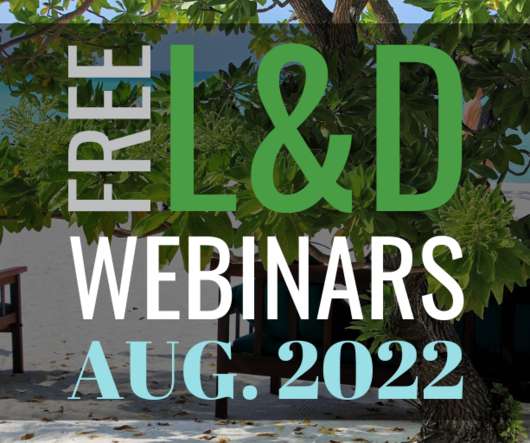New pedagogies?
Learning with e's
JANUARY 31, 2016
We need a new set of pedagogies (and we also need to know how these can be supported with theory) if we are to maximise the impact of technology on education. Photo by Alan Levine on Flickr New pedagogies? Unported License. Unported License. These are initial thoughts.












































Let's personalize your content